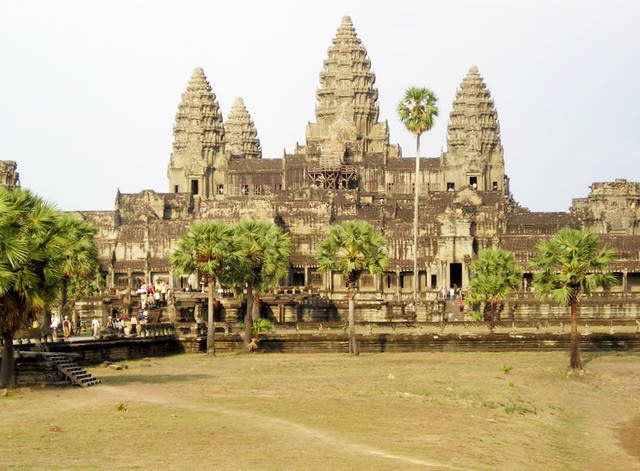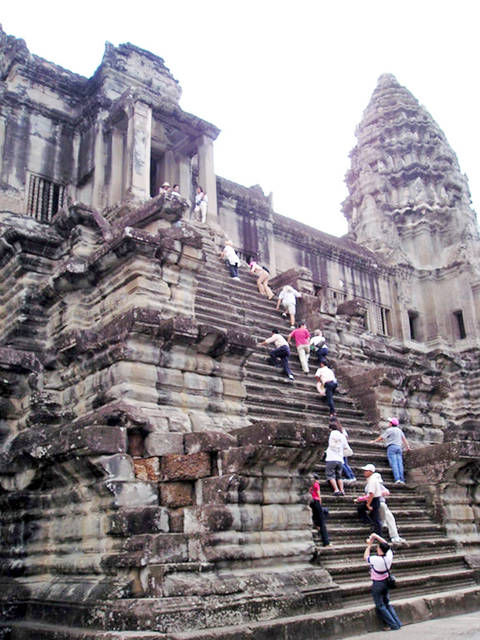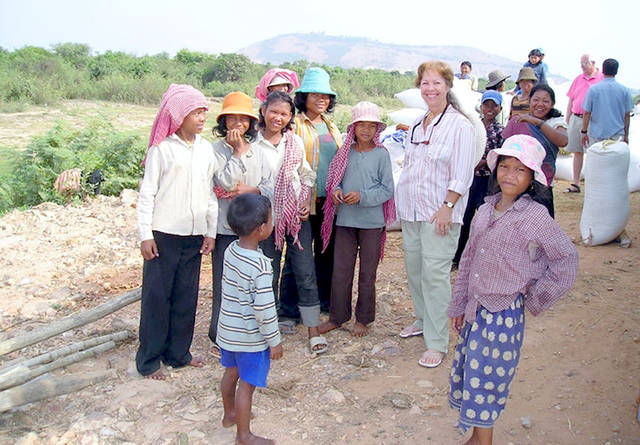“Faraway places with their strange-sounding names” have been calling to me since I was a young child, mesmerized by magic carpet stories that flew me regularly in and out of exciting experiences. How fortunate to be able to play out
“Faraway places with their strange-sounding names” have been calling to me since I was a young child, mesmerized by magic carpet stories that flew me regularly in and out of exciting experiences. How fortunate to be able to play out some of these adventures in real life, and with an equally dedicated Travel Companion (TC), my husband who shares the journeying.”– DFK
When the rainy season — our Kauai winter — arrived some years ago, it was time to think of our talked-and-dreamed-of adventure. “ “And what of Burma?” my TC asked with a humorous grin. This open-ended phrase tagging the last chapter of my memoir, “Jackals’ Wedding” (JW), had by then become a catch phrase.
“Don’t know,” I said, wondering if it was time for me to return, or if I should return at all.
The name Burma is so deeply rooted in my memory and family stories that I’ve balked at calling this generally little-known country by its new name, Myanmar. I wonder at my personal irritation over the 1988 replacement of the original name by the lawless military government. I should take it in stride that this renaming is an attempt to eradicate the origin of the Burman people, the Bamars, descended from the great teacher Buddha, himself, as legend would have it, although some say Myanmar was one of the ancient names.
When we leafed through a colorful pile of travel catalogs and brochures describing experiences ranging from “The Canals of Europe” through “The Eternal Nile” to “Amazon River Trip,” it was the East that was calling, as it had called us to India and Nepal. And specifically Burma.
We waited out that year, first watching for the SARS (Severe Acute Respiratory Syndrome) epidemic to come under control or play out its most virulent energy, but mostly watching for news of Burma. I kept my ear attuned to any news of Aung San Suu Kyi. This courageous woman, who was awarded the Nobel Peace Prize in the late 1990s for her faith and tenacity toward the goal of freedom for the Burmese people, had become a living symbol of hope.
Suu Kyi was then still under house arrest in Rangoon. Anyone acquainted with the situation could guess that the orders that detained her were issued through a chain of command leading from Gen. Ne Win, the past military dictator of Burma, whose tight controls and policies sent one of the richest countries in the world into a shocking poverty spin, and whose successors retained control of the country years after the people voted in Suu Kyi’s Democratic Party in their elections.
The military dictator continued to hold the power; he and his cronies and followers had the guns and had been shown through books written first-hand, to be waging a secret war against the different peoples that make up the populace of Burma. Especially the tribal people, of which Burma has many. Not only that, but through my reading and via an Internet search, I learned that the main training camp for the General’s troops was situated in no other than the childhood home of my parents — Maymyo.
The country didn’t appear to be a safe destination, even if we arranged to be accompanied by a Burmese guide. Yet the clock was ticking if I were to seek my missing father: If my dad had returned in 1948 and lived through the troubles and border wars occurring back then and in subsequent years, he’d have reached the age of 92. I wondered if I might recover even some small piece of information about Dad, even a short death notice.
We did go to Burma the next spring — but just for half a day, to Tachileik, a border town that was deemed safe enough for tourists by the overseeing travel planners at Overseas Adventure Travel (O.A.T.). We settled on a group trip to Thailand, which shares borders with Burma and the same, strong Buddhist orientation.
Leaving Kauai in late April, we walked into the blasting hot furnace of Bangkok around midnight two days later by the calendar. After being met by our O.A.T. guide — “Peter” (used in place of a tongue-twister Thai name) — and refreshed by a good night’s sleep, we were back to the airport to fly out to Cambodia, where another guide would lead us to see the World Heritage sites of Angkor, that famed temple complex of the ancient Khmer civilization.
Back in Thailand four days later, recovering from the shock of what had happened in that sad country during the Pol Pot regime, Peter showed us the wonders of the Bangkok morning … (To be continued)
•••
Poet and author Dawn Fraser Kawahara, a rooted Kauai transplant has, since her birth in British India, called many places “home” during her life. Kawahara for many years led and instructed travel groups to Hawaii and Pacific nations. This column is excerpted from her upcoming book, “Burma Banyan (Memoir II).” She pens “The Green Flash” column published every other week in The Garden Island (TGI). Further information about the writer and her work may be found through www.kauaiweddingsandbooks.




